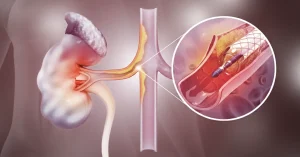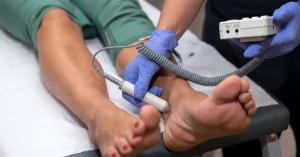Are you about to undergo surgery and unsure of what to expect? Lack of information often creates anxiety and fear before such procedures. The more informed you are, the more confident and less stressed you will feel. Reading the following information will help you understand the process, what to ask your doctor, and what to expect after the operation.
How Many Types of Surgery Are There and What Does Each One Involve?
Surgery is a form of treatment that traditionally required a large incision to access the body. Modern technology now makes it possible to perform operations with small incisions, often less than one centimeter, using instruments called trocars and a camera called a laparoscope.
This technique is known as laparoscopic surgery and offers many advantages, including smaller scars, reduced post-operative pain, shorter hospital stays, and faster recovery. It also lowers the risk of post-operative complications.
Traditional surgery may still be necessary in certain cases, as it provides better visibility of the target organ. Surgeons may also switch from laparoscopy to traditional surgery during a procedure if complications arise.
Surgery can serve many purposes, such as confirming a diagnosis, removing or repairing tissue, implanting devices, redirecting blood vessels, or transplanting organs. Some procedures are also performed for cosmetic purposes.
How Should You Prepare for Surgery?
Preparation begins with a consultation where your doctor reviews your medical history, treatments, and allergies to avoid interactions with anesthesia. This ensures the procedure is performed as safely as possible.
Preparation varies depending on the type of procedure and anesthesia required. Your doctor will explain what to do in your specific case. For surgeries under general anesthesia, you may be asked to follow these guidelines:
- Do not eat or drink for a set time before surgery
- Wash, clean, or shave the surgical area if needed
- Complete blood tests, X-rays, ECG, or other evaluations
- Use an enema the night before, if instructed
- Do not wear makeup
- Do not use nail polish
- Do not wear contact lenses
- Leave valuables and jewelry at home
- Inform staff about prostheses or medical devices you use
Who Is on the Team That Will Be in the Operating Room?
A surgical team includes doctors and nurses who work together to ensure patient safety. The exact members present may differ based on the type of surgery. In most cases, the team includes:
- The surgeon, who leads and performs the procedure, often assisted by residents
- The anesthesiologist, who administers anesthesia, monitors vital signs, and adjusts doses during surgery
- Nurses, who assist the surgeon, monitor the patient, and administer medication
What Happens During Surgery?
Once in the operating room, you will be placed on a surgical table and connected to monitoring equipment. Oxygen is administered through a mask, and anesthesia is delivered by the anesthesiologist to keep you pain-free and asleep.
Your blood oxygen levels will be monitored with a pulse oximeter on your finger. A cuff will monitor blood pressure, and electrodes on your chest will track your pulse and heart rate. These steps ensure your safety throughout the operation.
What Type of Anesthesia Will You Receive?
Anesthesia allows surgery to be performed without pain. Your doctor will decide whether local, regional, or general anesthesia is best for your case. Local anesthesia numbs a small area of the body for a short time and is often used in dentistry.
Regional anesthesia numbs a larger part of the body, such as the lower half, and you remain awake during the procedure. Examples include spinal anesthesia for a cesarean section. General anesthesia affects the entire body, keeps you asleep, and carries the highest risks.
What Happens After Surgery?
After surgery, you will be moved to a recovery room where your condition is closely monitored. Once you are stable, you will be discharged home. Hospital stay duration depends on the type of surgery, with laparoscopic procedures often requiring only one day.
Your recovery process will be guided by medical staff, and instructions will be provided before leaving the hospital. These include wound care, pain management, and activity limitations.
Recovery for Each Type of Surgery
Recovery time depends on the procedure performed. It may take hours for anesthesia to fully wear off, and pain medication will be prescribed as needed.
Patients are encouraged to cough deeply after surgery to expand the lungs and reduce risks of pneumonia or breathing problems. Caring for the incision is essential, with dressing changes done as instructed by your surgeon.
Some patients may temporarily need a urinary catheter, as anesthesia affects bladder and digestive functions. Once the digestive system resumes activity, a liquid diet will be started, followed by solid food when allowed.
Activity restrictions vary, but heavy lifting is usually not permitted until healing progresses. In some cases, physical therapy supports full recovery and return to normal activity.
The Most Important Questions You Should Ask Your Doctor or Surgeon
Why Do I Need Surgery?
Surgery may be needed for diagnosis, treatment, or symptom relief. Your surgeon will explain the reasons and how the procedure will improve your health.
Are There Other Surgical or Non-Surgical Alternatives for Treatment?
Some conditions can be managed with medication or lifestyle changes instead of surgery. Your doctor will guide you in comparing risks and benefits. Sometimes, a waiting period may be advised to monitor disease progression. In other cases, surgery remains the only solution.
What Are the Benefits of Surgery and How Long Will They Last?
Surgical benefits vary depending on the procedure. Some are long-lasting, while others may require repeat interventions. Cosmetic surgeries often need additional procedures, while surgeries like hysterectomy usually require only one operation.
What Are the Risks and Possible Complications Associated With Your Procedure?
Every surgery carries risks, including infection, bleeding, blood clots, or side effects from anesthesia. While most complications are manageable, knowing the warning signs is crucial.
Seek medical help if you develop fever, redness, swelling, or discharge at the incision site. These may indicate infection requiring antibiotics. Severe symptoms like extreme fatigue, rapid pulse, or low blood pressure may signal internal bleeding and need urgent care.
Laparoscopic general surgery is an important focus of the VenArt Clinic. Procedures are performed by experienced surgeons trained in top European, US, and Israeli centers.
Minimally invasive techniques now allow over 60% of patients to be treated as outpatients. For more details, visit our General Surgery section.
VenArt Clinic partners with health insurance providers including Signal Iduna, NN Asigurari, Star BT, Sano Pass, Medicover, and Allianz. Talk to us today and see how we can help.
Cluj-Napoca – Phone: 0364 140 261
Bucharest – Phone: 0731 837 520
WhatsApp – 0731 837 520











